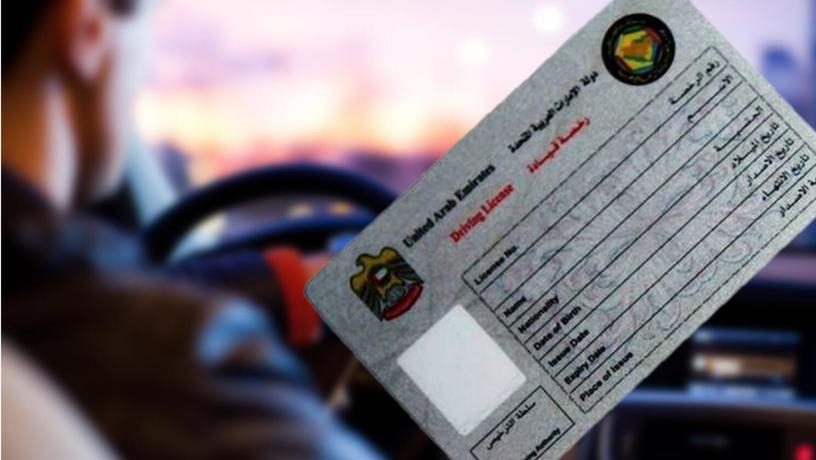As the UAE continues to expand its commercial transport and logistics sectors, the demand for legally permitted commercial vehicles has grown significantly. In 2024, saw a 43% increase in newly registered commercial vehicle Permit in UAE compared to 2023, reflecting rising business activity in transport, logistics, and vehicle rentals.
Whether you are a haulage company, a bus operator, or a logistics startup, obtaining a commercial vehicle permit is mandatory. Without this permit, you cannot legally operate goods or passenger transport services, which may result in fines, impoundment, or other penalties. In this guide, we walk through the full process, essential requirements, typical costs, and tips to ensure smooth approval of your application.
What a Commercial Vehicle Permit Covers

Before applying, it’s important to understand exactly what a commercial vehicle permit allows you to do, and under what conditions. Typically, such a permit authorises a vehicle to carry goods or passengers for hire, operates across emirates (if required), or engages in specific transport activities like school transport, rentals, or freight.
Depending on the emirate (Dubai, Abu Dhabi, Sharjah, etc.), the nature of the permit—whether for trucks, buses, light commercial vehicles, or taxis—will vary. You may also need additional permits, especially if your operations cross emirate borders or involve international transport of goods.
Documents and Eligibility Requirements
Getting your paperwork in order is crucial. Authorities in the UAE are strict about documentation and compliance. Below are the typical requirements:
- Valid trade or commercial licence reflecting the transport or logistics business as a permitted activity.
- Vehicle registration certificate (ownership or registration papers) of the vehicle for which you require the permit.
- Valid UAE insurance covering goods or passenger transport depending on permit type.
- Technical safety compliance: the vehicle must meet safety, emissions and roadworthiness standards. If crossing emirates, this may include specific checks.
- Valid driver’s permits or professional licence for drivers (especially for heavy vehicles, passenger transport, school buses, etc.).
- Proof of company registration, Emirates ID/residency status of owners or authorised signatories, powers of attorney if someone applies on behalf of the company.
Check with the local Transport Authority (e.g., RTA in Dubai, Asateel in Abu Dhabi) for any additional local requirements.
Step-by-Step Application Process

Here’s a typical process flow—note that exact steps may differ between emirates, but the general path is similar.
Check permit type needed
Determine whether you need a permit for goods transport, passenger transport, or both. Also check if you need a permit for one emirate or for cross-emirate or international operations.
Prepare documents
Gather all required legal, vehicle, insurance, and company documents. Ensure that the vehicle is technically fit, inspected, and compliant with safety regulations.
Submit application
Submit the application via the digital portal of the relevant transport authority. For example, MOEI (Ministry of Economy & Infrastructure) offers a “national transportation vehicle permit” service. Also, Abu Dhabi’s Asateel platform is used in that emirate for commercial transport activities including permits.
Pay fees
Permit fees vary depending on vehicle type, weight, use (goods vs passenger), and whether crossing emirates or international. For example, temporary permits might cost less, while full commercial licences have higher fees. Authorities will require payment online or through authorised channels.
Inspection or verification
In many cases, the vehicle must undergo a physical inspection for safety, roadworthiness, emissions, or other technical checks. Sometimes the driver or equipment (e.g. tracking devices) also needs inspection or installation. For instance, Asateel requires commercial transport vehicles to have functioning tracking devices installed.
Receive permit & compliance review
Once the application is approved, you’ll receive the permit—often digital via the portal. Review the permit’s conditions, validity period, and renewal requirements. Make sure all documents (insurance, licence, vehicle registration) remain current during the permit’s life.
Cost, Validity, & Renewal
Fees and validity terms are often more complex than people expect.
- Costs depend on type (light commercial, heavy, passenger, or goods), how many vehicles in fleet, and whether operation is local, inter-emirate or international.
- Validity: Many permits are valid for one year, though temporary permits or short-term permits may be valid for days or months depending on purpose.
- Renewal usually requires resubmission of some documentation (e.g. proof of insurance, renewed technical inspection). Late renewal may incur penalties.
On the market and regulatory front, the demand for permits has surged: Dubai’s Roads and Transport Authority issued 67,341 professional transport permits in 2023, which marks a 25% growth over the previous year. This shows how businesses are scaling up operations, requiring more permit/licenses to stay compliant.
Common Challenges and How to Avoid Delays
While the process is relatively well-defined, many applicants face delays or rejections due to common issues:
- Missing or expired documents (insurance, registration, safety certificates).
- Vehicles failing technical inspection (emissions, safety).
- Incorrect or incomplete applications in digital portals.
- Not installing required devices (e.g. GPS tracking) or failing to meet additional local regulatory requirements.
- Unclear classification (goods vs passenger, what category of commercial vehicle).
To avoid delays: double-check requirements with the authority in your emirate; have all documents ready; ensure vehicle compliance; follow up if needed; use digital tracking of application status where available.
Real-World Impact & Statistics
Understanding the scale of permit issuance and vehicle growth helps put things in perspective.
- The number of companies operating in Dubai’s commercial and logistics transport sector jumped from 9,000 to 12,100 in 2024 — a 34% growth year-on-year.
- Registered vehicles in that sector increased by over 100,000 in the same period, bringing totals to more than 400,000 — about a 31% rise compared to the previous year.
These numbers show not only that regulatory demand is high but also that authorities are scaling up permit infrastructure accordingly.
Tips for a Smooth Application
To ensure your permit application proceeds as quickly as possible, consider these best practices:
- Use the official digital service portals—this speeds up processing and provides status tracking.
- Keep all documentation valid and renew expirables (insurance, registration, inspection) ahead of time.
- If operating a fleet, ensure all vehicles meet required technical standards and any special device requirements (e.g. GPS trackers) are met.
- Understand classification: make sure you apply under the correct category (goods/passenger, local/intra-emirate, etc.).
- Seek help from authorised service centers or legal/compliance consultants, especially if your operations cross emirates.
Conclusion
Obtaining a commercial vehicle permit in the UAE involves clear steps: determining the permit type, gathering documentation, submitting the application, paying fees, undergoing inspection, and ensuring compliance during the permit’s validity. With recent statistics showing strong growth in the transport sector, staying compliant isn’t optional—it’s essential for operating legally and competitively.
If you’re considering applying for a permit or need templates, guidance or professional assistance, Permits.ae is a useful resource that helps with understanding requirements, navigating application portals, and ensuring your submission is complete. With the right preparation, you can secure your commercial vehicle permit efficiently and get your operations on the road without delay.


